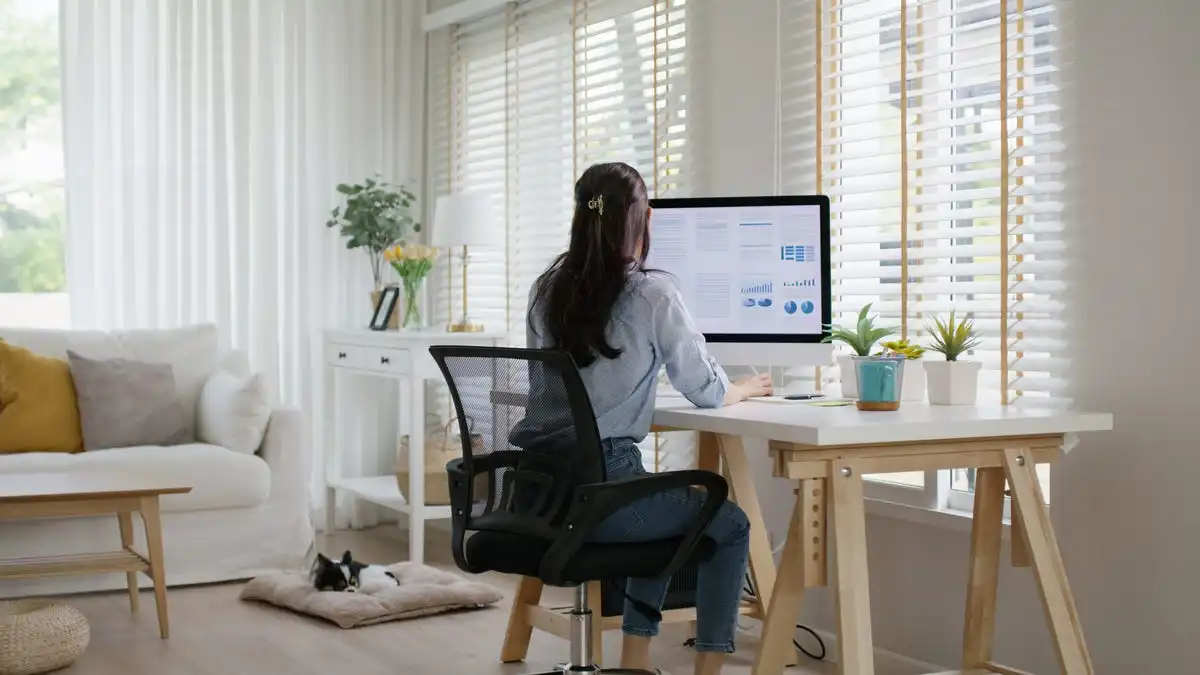My favorite quote:
While employees in the office might kill time messaging friends or flipping through TikTok, remote workers take advantage of being far from the watchful gaze of bosses to chip away at personal to-do lists or to goof off.
Nearly half of remote workers multitask on work calls or complete household chores like unloading the dishwasher or doing a load of laundry, according to the SurveyMonkey poll of 3,117 full-time workers in the U.S.
Oh noes, people actually doing things that are useful for their families instead of even more computer time.
It’s insane that this is even considered strange or surprising. When I work from home, I take longer lunch breaks and I often stop working earlier, but I’m still three times as productive compared to sitting in an office.
At home, I actually get focused time to do something and think. At the office, this is extreamly difficult with all the distractions and noise constantly interrupting my train of thought.



I agree with your last point, and while I’m not against working from home—in fact, I think it’s fantastic for employees—I don’t believe it’s equally great for businesses. The shift to remote work has really highlighted just how much of the work people do is, in Graeber’s words, “bullshit.” As David Graeber aptly said, “It’s as if someone were out there making up pointless jobs just for the sake of keeping us all working.”
This realization is a bit uncomfortable for many companies because it suggests that a significant part of their operations might not be as crucial as they thought. Instead of streamlining and rethinking these roles, they’re currently expanding managerial surveillance. Companies are now using intrusive monitoring tools that track every keystroke, mouse movement, and even how long you’re inactive. Eventually that could reasonably lead to efficiency firings and that “comfort buffer” that WFH has created will be replaced with additional tasks and expectations.
This heightened surveillance turns the promise of flexibility and freedom that WFH initially offered into a kind of digital panopticon, where employees feel like they’re constantly being watched. It raises concerns that we might be heading toward a hyper-Fordist nightmare—a future where the efficiency being chased at the expense of worker well-being is given new and more powerful tools, and the lines between work and personal life become hopelessly blurred.
It also seems like an obvious answer is to dramatically decrease salaried employees who take long lunches and quit work early because they’ve “completed their tasks,” to task-dependent contracts with assumption (but no guarantee) of renewal. It sounds like you’re in the sweet spot between the previous reality of work and the possible future reality, and I’m just saying you should ride and extend that situation as long as you can.
The early excitement about working from home could unintentionally lead to significant downsides for employees. Invasive monitoring can ramp up stress, erode privacy, and make people feel dehumanized. Plus, the loss of trust between employers and employees can hurt morale and actually decrease productivity over time. It seems important to address these issues now to prevent remote work from becoming a tool for unprecedented employee exploitation, which is why I think of all your commentary so far, your last paragraph here is probably the most agreeable and important.